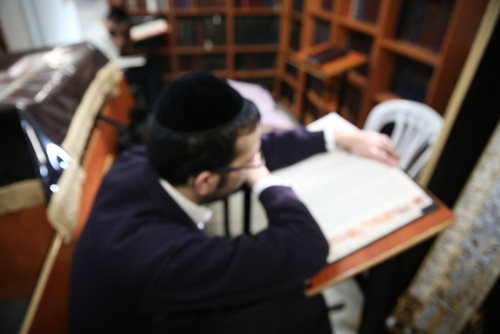The One Who Relies on God
The Midrash (Bereishit Rabbah 89:3) says that Yosef (Joseph) is the example of one who relies on God. To support this statement, the Midrash cites the fact that Yosef asked the minister of drinks to mention him to Pharaoh, and as a result, two more years were added to his sentence in jail.
This is referring to the story in this week’s Torah reading. Yosef was thrown into jail based on false accusations. In jail, he met two minsters of Pharaoh who were also imprisoned; the minister of food and the minister of drinks. One night, they both had dreams, and the following day, Yosef interpreted their dreams. Yosef interpreted the dream of the minister of drinks to mean that he will be released from prison in three days’ time. Yosef requested of him to mention his plight to Pharaoh, once he was out of jail, to request his freedom.
The Midrash says that because he did this, instead of fully relying on God, he was punished with having to remain in prison for two additional years. The problem is that this Midrash is citing this to support that fact that Yosef was a person who relied on God. If he was punished here for not relying properly on God, why then does the Midrash point to this episode to highlight Yosef as an example of one who relies on God?
Balance is Key
The Beit Halevi, (in the beginning of Parshat Mikeitz) resolves this difficulty with an enlightening concept. Says the Beit Halevi, there is a constant balance every person has to have between the extent of which he should take action to attain his needs, versus relying on God to help him. The balance varies from person to person and situation to situation. A person is permitted to take as much action as he reasonably needs in order to get to a place where he can rely on God to take care of the rest. Once a person reaches this point, it is a sin to engage in further endeavors to achieve his goal. When one does so, his punishment is that he is left to his own devices, and he does not receive the Divine assistance he could have had by solely relying on God.
Based on this concept, explains the Beit Halevi, the Midrash is proving that Yosef was a person of tremendous reliance on God. From the fact that he was punished by having to remain in prison for two extra years for merely asking the minster of drinks to mention his situation to Pharaoh, we see what a high level of reliance on God he was on.
For Yosef, Even a Minute Action was Excessive
Yosef had no foreseeable way of getting out of the Egyptian jail. He had noone to lobby for him. This was the single opportunity he had to attempt to send a message to someone who had power to help him, yet he was faulted for doing so. The only way it is possible for this to be considered a mistake on Yosef’s part is if he was a person who reached such a high level of reliance on God to the point that even such a minute action was considered excessive, according to his level. Therefore, from the fact that he was punished for this, the Midrash sees this as a proof that he was the prime example of someone who is truly reliant on God.
We’ll Leave the Rest to God
Rabbi Yosef Shlomo Kahaneman was on a fund-raising trip to raise funds for a lot he needed to purchase for his institution. It was the day before the scheduled closing, and he was still short of funds. He worked hard the entire day, trying to raise the missing amount, but he still did not raise the full amount needed. When evening came, he told his son, “We were busy with this all day and we didn’t get to study Torah yet. Let’s study Torah now.” His son asked him, “But what’s going to be with the funds we still need?” His father told him, “We already did our due diligence, we’ll leave the rest to God.”
Later that night, two people asked him to hold on to a sum of money for them for some time. Rabbi Kahaneman agreed and asked if he can borrow the funds in the meantime. Permission granted, the money was the exact amount he needed to complete the deal.
God Determines the Results
The balance between how much action we should take and how much we should leave up to God to take care of is not easy to determine. It varies from person to person, and even with the same person, it varies from situation to situation. At the same time, we must not be negligent in taking action to care for things that God wants us to. However, we should always aspire to rely on God as much as possible, and realize that the action we take is not what will produce the results.
The action we take is what God wants us to do to get to the point where we have the ability to truly rely on Him to take care of the rest. Once we’ve reached a point when we have taken the reasonable measures necessary for our situation, we need to be disciplined and leave the rest up to God. Engaging in excessive, unnecessary action may only prove to be counterproductive.
By Rabbi Yitzchok Aryeh Strimber torah4every1@gmail.com


